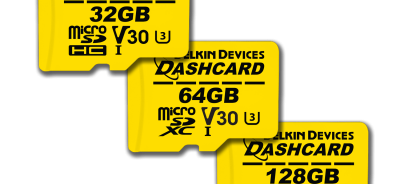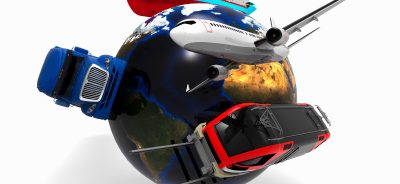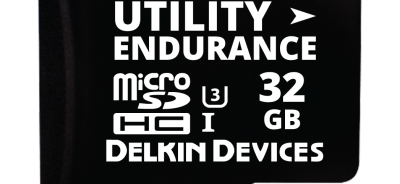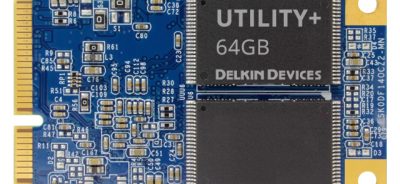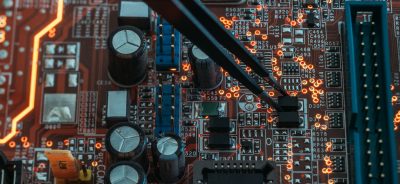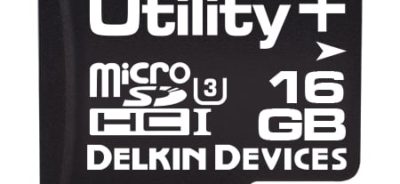Customer Success Story: Designing Applications Around Technological Advancements
Engineers and designers behind technological industrial applications have a challenging balancing act. They need to design applications with industrial-grade performance that offer longevity and won’t soon be outdated. However, they also need to consider budgetary constraints and the needs of the device and its users.
Many engineers try to achieve longevity by incorporating the latest technological advancements into their designs. This begs the question: Is this always the best choice? As Delkin discovered while assisting one customer, using the latest advancements in technology is not as important as ensuring an application’s storage is appropriate for the needs of the device and its users. This fact is essential for developers to keep in mind as they choose memory cards for their devices.
Customer Story
A customer approached Delkin in the hopes of adding microSD cards to the backup cameras for their technological video logging application. In most cases, the host application recorded video that was saved to a central location. However, in the event of a power failure, the video would record locally to the camera. The microSD cards were to be used for that purpose.
The customer weighed the options between commercial and industrial microSD cards. They determined that it was important for them to have high-capacity storage, since their video files would be large. They didn’t want to risk losing video footage due to exceeding the capacity of the memory card. The latest technological advances meant that they had the option of getting cards with the large capacity that they needed, as well as high video resolution and high-speed recording.
There was one problem—the cards they wanted were too pricy for their budget. They turned to Delkin in the hopes of finding a viable solution that would meet their needs at a price point that they could support.
Delkin Discovery
To find a resolution, Delkin’s customer applications team first took the time to fully understand the customer’s system. They also worked to learn the signs that would indicate to the customer that a memory card was about to fail. Having this information allowed Delkin to consider different options for embedded storage.
Using a variety of tools, including testing that is proprietary to Delkin, the customer applications team examined everything about how the current memory cards were working, from the types of files and how the files were being written to the power usage, signals of the card, and more. After analyzing all of this information, Delkin made an important determination. The customer did not actually need high-resolution and high-speed memory cards. They would be overpaying for memory cards without getting the lifespan or capacity they needed out of them. In reality, they just needed to make sure they were using their memory cards as efficiently as possible.
Delkin Solution
Delkin’s ultimate goal for this customer was to find a way to extend the life of memory cards that were better suited to their application’s needs and their budget. Since the customer was not recording high-resolution video, the highest-end, latest memory cards were not needed. Instead, Delkin could work on customizing Utility grade memory cards to meet the customer’s need for a long lifespan and high-capacity storage while easily staying within budget. These customizations would help solve the customer’s concerns with capacity without forcing them to pay for features that they didn’t need.
Utility memory cards combine the benefits of industrial, SLC storage and commercial, MLC storage. These cards have the large storage capacities associated with MLC flash memory. However, they come with integrated data security and lifecycle management features usually reserved for industrial-grade, SLC flash memory. In addition to extended temperature ranges and tolerance of shock and vibration, the Utility memory cards chosen for the customer also featured a locked BOM, or bill of materials. A locked BOM means that no changes to the critical components of the memory, including the controller, will be made without advanced notification and the issuing of a new product number. This lets users manage the transition to a new memory card efficiently and helps prevent unexpected failures in the field due to compatibility issues.
Utility memory cards are slightly slower than industrial memory cards since they record two bits of data on each cell. However, the difference in speed is minimal and was not enough to be of concern to this customer, who did not need high-speed memory for their recordings.
Delkin customized these cards with non-FAT (file allocation table) optimizations. The customer applications team also introduced wear-leveling algorithms to ensure that the cards were using storage space efficiently and minimized the WAF, or write amplification factor. Write amplification is something that is present in all kinds of flash memory. The WAF gives an indication of how efficient flash memory is, and tends to increase over the life of a device. Minimizing the WAF helps to increase the lifespan of the memory card. As a result of these Delkin customizations, the cards performed better for the customer and met all of their criteria for storage at a manageable price point.
Lessons Learned
New technology does not necessarily have universal applications. Although the desire to design around the latest technology is understandable, there are no one-size-fits-all solutions. For many customers, new technology is not the best fit. Before overspending on something for an application just because it is new, find out if the technology you are already using can be customized to better meet your needs. You may find that a few tweaks to your existing system give you even better results than the new technology at a price that is more in line with your budget.
Delkin’s Technical Team Is Here to Help
Our customer applications team works closely with each customer to find individualized solutions. We’ll take the time to understand your application, budget, and preferences. Delkin’s proprietary testing and customization options mean you can get an embedded storage solution customized to fit your specific needs. Call us today for a free consultation.
ORDER DELKIN INDUSTRIAL FLASH STORAGE TODAY through our distribution partner Newark.
For Europe Contact Our Partner Farnell
 Login
Login Register
Register



